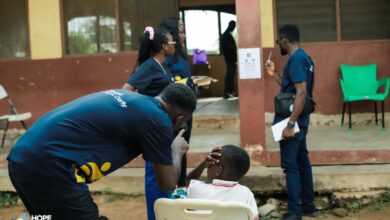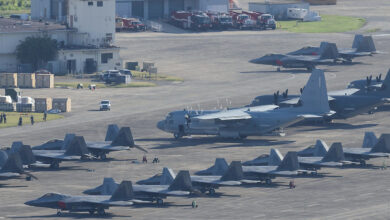FATF Reaffirms Backing for West Africa’s Fight Against Financial Crimes

The Financial Action Task Force (FATF) has renewed its commitment to helping West African states strengthen their defences against money laundering and terrorist financing, as the region continues to face complex security and financial crime threats.
FATF President, Elisa de Anda Madrazo, gave the assurance in a message to participants at the FATF/Inter-Governmental Action Group Against Money Laundering in West Africa (GIABA) Joint Experts Meeting taking place in Accra.
Madrazo said deepening collaboration across the global anti-money laundering network remains a priority, noting that robust partnerships are essential to preventing criminals and extremist groups from exploiting financial systems.
“As President of the FATF, I want to reaffirm our support for West Africa’s efforts to build robust and effective anti-money laundering and counter-terrorist financing frameworks,” she said in her pre-recorded statement.
She cautioned that both money laundering and terrorist financing are evolving in scale and sophistication, with illicit actors increasingly using trade, digital platforms, real estate, and informal value transfer systems to conceal financial flows. These activities, she stressed, undermine national security, destabilize communities, weaken institutions, and drain economic resources needed for development.
“These threats continue to evolve, and they require a united, strategic, and operational response,” she noted.
Strengthening Regional Enforcement Capacity
The Accra meeting has convened law enforcement agencies, customs officers, financial intelligence units, prosecutors, regulators, and banking compliance experts from across West Africa and beyond. The goal is to share intelligence, align enforcement practices, and develop more coordinated responses.
Discussions are centred on two key themes: Trade-Based Financial Crime, where criminals exploit trade transactions to disguise illicit funds, and Terrorist Financing, a persistent challenge in parts of the Sahel and coastal West Africa.
Officials say the outcomes of the meeting are expected to inform new regional strategies, enhance cross-border investigations, and support member states to comply with international anti-money laundering standards.
West Africa at a Critical Junction
The sub-region continues to battle rising terrorism threats in the Sahel, increased illicit financial flows, and expanding smuggling networks. Analysts say improving the traceability of financial transactions, strengthening border monitoring, and enhancing collaboration among financial intelligence agencies will be crucial in preventing extremist groups from accessing funding.
GIABA officials note that although member states have made progress in recent years, sustained capacity-building and political commitment are needed to close loopholes and ensure the resilience of financial systems.




